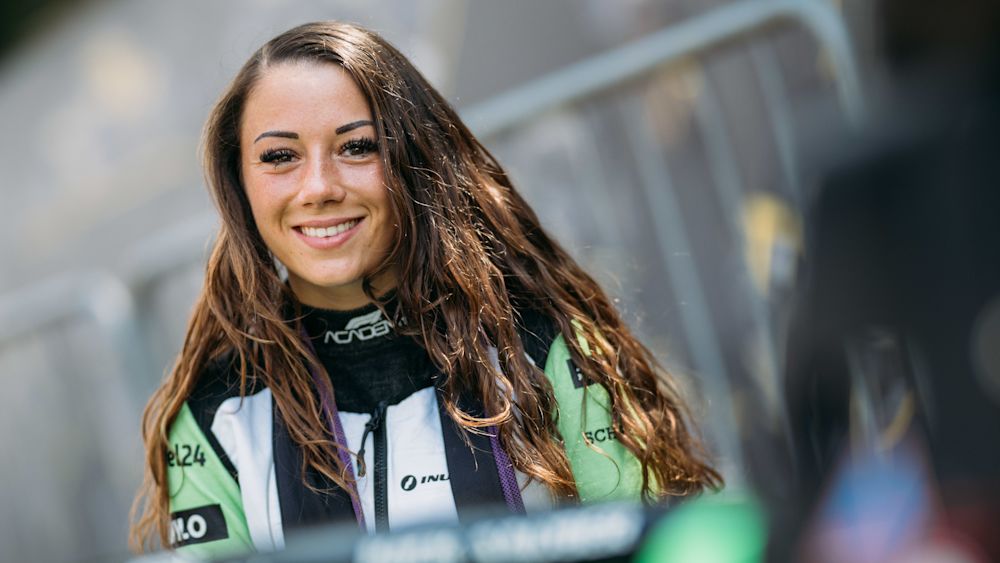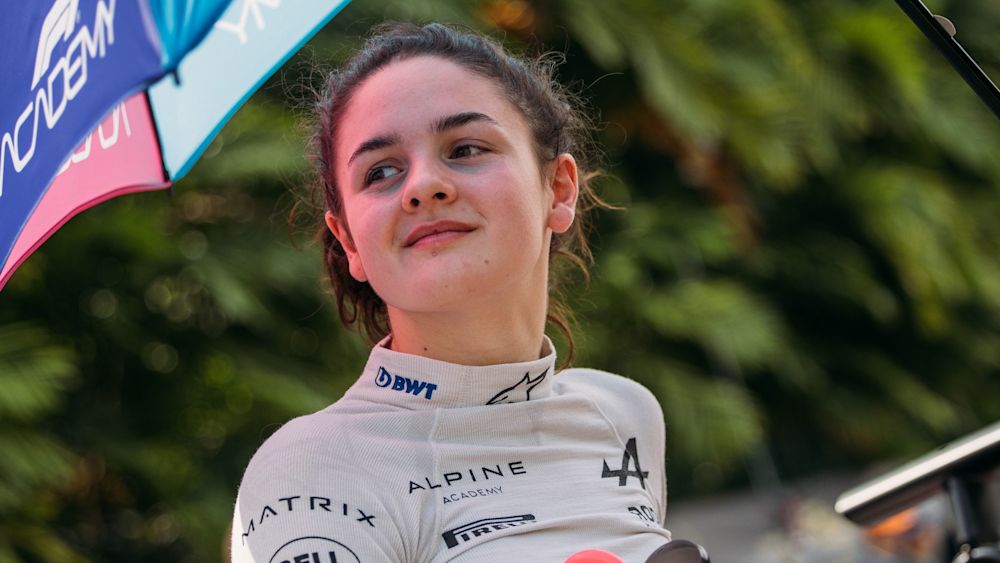Interview
'We need to break the stigma' - Schreiner, Pulling and Driver Development Lead Katie Baldwin talk Mental Health awareness

In the highly-pressurised and competitive world of motorsport, emotions can run high — whether that’s celebrating triumphs or dealing with setbacks and disappointments. Drivers and those working in the sport are constantly pushing forward, but there’s always time to pause, reflect and check in on each other.
In support of World Mental Health Day 2024, Kick Sauber’s Carrie Schreiner and Alpine’s Abbi Pulling opened up about the pressures they face in racing and how mindfulness has become a core part of their routine preparations, whilst Katie Baldwin, F1 ACADEMY’s Driver Development Lead discussed the importance of talking openly about mental wellbeing in motorsport.
“You always feel pressure because you always want to perform well,” begins Schreiner. “You want to show the world what you’re able to do. Then there is TV coverage, we are supported by Formula 1 teams and of course, if you’re bad, it doesn’t feel so great. So, you always want to show your best and to perform the best you can.”
Pulling adds: “Dealing with your mental health and wellbeing during a race season, and just in life in general, is really important. I always say a happy Abbi is a fast Abbi. When you’re mentally happy, not stressed and feeling a bit weightless as I call it, you’re always going to drive at your best. It’s really important to have a good network of people around you and also to have ways to relax between race weekends.”
Creating and promoting a supportive culture underpins the connection between mental and physical health. Whilst conversations might not always be easy for someone who is struggling, chatting with a friendly face can be a source of encouragement.
“It’s really important that we talk openly about mental health in any environment, but particularly in motorsport where we know that it’s a high-pressured and very demanding environment to operate in at a high level consistently,” notes Baldwin.

“We also need to break the stigma. Mental health is often downplayed or ignored, and open conversations can really help to break this stigma down to create a healthier and more supportive environment for drivers, crews and anybody else operating in the environment.”
Whilst every driver would love to be standing on the top step weekend in, weekend out, the reality is knock-backs are an unavoidable part of their journeys. However, that doesn’t mean they’re any easier to overcome and it’s vital that how they prepare mentally before and during a race weekend is tailored to each individual’s own needs.
“I have a mental performance coach from Gazing Performance Systems, his name is Martin,” explains Pulling. “I do a lot of work with him and we have a lot of notes that I do. I have a book that I make my notes in and it’s kind of a routine, if anything else now. I kind of know it all and it’s just about reminding myself of things that I can and can’t control and things that I need to focus on. Then I do my technical work more with my race team and my engineer.”
“I had moments in my career where I was just about to stop racing,” Schreiner admits. “But I’m so happy that I didn’t because the feeling, after a big disappointment, to be back on the podium or win a race is the best feeling in the world. So I would just say never stop, never give up and most of all, after the rain always comes the sunshine again.”
At its heart, motorsport is a team sport and everyone can do their bit to look out for one another, whether that’s helping their crews to manage burnout or simply asking a colleague if they’re okay and giving them the time and space to open up if they wish.
“To support each other best, drivers and crew members should check in regularly with each other,” concludes Baldwin. “Keeping open communication, whether that’s just listening and being there, or offering to signpost advice where needed. Also, celebrating successes — whether that’s just small wins rather than focusing on the bigger results, looking at the processes and what went well within those.”